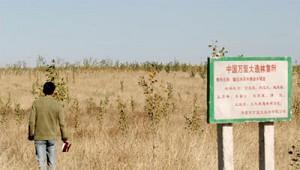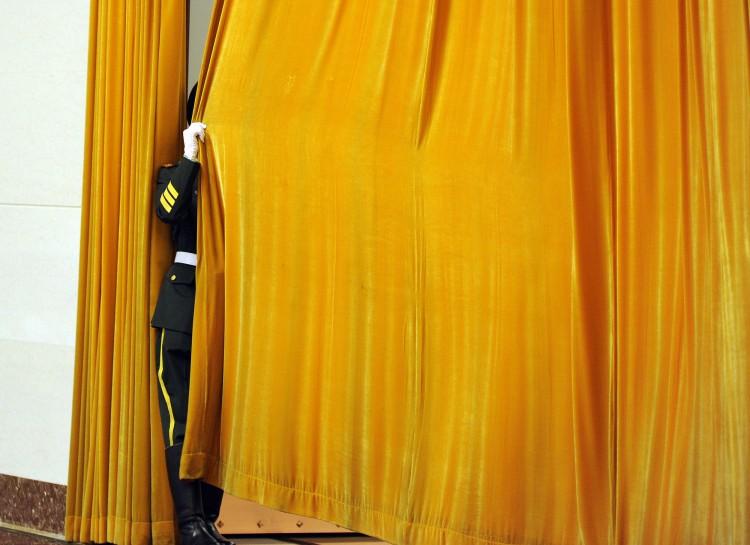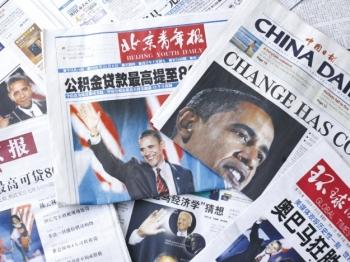In early November, China’s Ministry of Public Security issued a warrant for the arrest of four suspects illegally engaged in a pyramid-selling scheme under the name “Million Forestation Company” in Inner Mongolia Autonomous Region.
The company extorted over 1.3 billion yuan (US$176 million) from more than 32,200 people, who were promised sizable profits. Most of them invested their life savings.
Not too long ago, whenever you watched the CCTV channels, you could see a thin man continuously repeating the phrase, “Million Forestation, Good to People and Country.” He, Chen Xianggui, was the board chairman of the company before being arrested in September this year.
He was the man who used to be applauded by China’s official media as a meritorious figure in the country’s economic development. Now he has become a swindler who acquired a huge amount of money by illegal capital funding. How did he fool so many people?
Greening One Thousandth of the Country?
Chen Xianggui was born in Zhaoyuan County, Heilongjiang Province in 1964. He joined the forest police at the age of 18. After being discharged from the military service, he became a salesman for a washing powder factory.
With the “Decision to Accelerate Forestry Development” formulated by the State Council of the Central Committee of the Chinese Communist Party in June 2003, people were encouraged to turn to self-provided investment in forestry development. Chen Xianggui set up the Million Forestation Company in Inner Mongolia. He claimed the total projected aforestation area in five years would be a million hectares, and that 0.1 percent of the country will be covered by greening. The company thus opened more than 100 branches with more than 9,000 salespeople across the country
According to its publicity materials, the company procured a million hectares of vacant grassland in Tongliao County, Inner Mongolia. The company mobilized a lot of resources to plant trees, and also invited all social sectors to participate in the great act of “greening one thousandth of our motherland.”
The publicity materials also claimed that if an investor would invest 30,000 yuan ($4,070), the Million Forestation Company could plant 10 mu (1 mu = 0.1647 acre) of fast-growing poplar super variety in the uncultivated grassland for the investor. After eight years, the investor would expect to receive accumulated earnings of 180,000 yuan ($44,348).
At that time in Beijing, there emerged over 20 forestation companies, similar to the Million Forestation Company. Each of them claimed to forest thousands or even millions of acres of woodland. The barren and cold land in North China seemed to be transformed into a paradise of green trees for a moment. However, experts from the Inner Mongolia Forestry Bureau pointed out that local regions receive only 300 mm annual rainfall and thus it was inappropriate to plant trees.
It was revealed that these forestation companies had held contracted management of grassland for greening development at a price of three to ten yuan per mu. But the land was resold to investors at a price of about 3,000 yuan ($407) per mu.
The Big Confidence Trick
A salesperson for the Million Forestation Company disclosed, “One is only asked to fill out a form, without signing any labor contract or getting any pay. With a name card attached, one would become the company’s salesperson. If a client was talked into making an investment, the salesperson could earn three percent of the amount of investment as sales commission. In this way, a multi-level hierarchy of salespeople or a pyramid-shaped sale structure was built.”
Pretty soon the investors found out that there was something wrong with the company. In mid-October of 2004, the Million Forestation Company’s bogus propaganda and sales methods in network marketing had received extensive coverage from China’s media outlets, such as the East Asia Economy and Trade News, the Xiang Daily , and the Liao Shen Evening News.
Reporters discovered that the forerunner of the Million Forestation Company, the Hong Kong International Group Ltd of 8-Minute Laundry, turned out to be an empty shell company.
The company claimed that the planted “Zhelin Poplar No.4” would have grown into tall trees in eight years with trunks at least 24 cm in diameter. But experts in forestation commented that the most challenging task to afforest sand hills around the Tongliao areas is to water the plants. According to the experts it is impossible for the poplars to reach 10 cm in diameter in eight years.
Some reporters discovered, during a field trip to investigate the effect of afforestation on the company’s woodlands, that among the 1,000 mu of fast-growing poplars, only a few of them survived. The other forestation companies also had similar results of afforestation.
Buying Honorary Titles
Questioned by media, the Million Forestation Company filed a lawsuit on October 19, 2004 against the East Asia Economy and Trade News and the Xiang Daily for their “misleading reports.” The company staff had previously beaten investors who demanded a full refund on their investment and also reporters who came for an interview.
Yet one month later, the company dropped the lawsuit. Afterwards, Chen Xianggui established a Client Supervision Committee in his attempt to win over more investors. Faced with clients who came to withdraw their investment from the company, the company firmly refused their requests. For some clients who insisted on the withdrawal of their money, a huge service fee was charged. As a result, many of the investors had no choice but to retain their investment.
At that time, Chen Xianggui had acquired over one billion yuan. Under the protection of corrupt officials, Chen Xianggui quickly escaped without punishment. He used his money to silence the media and to get officials to grant him a forest right certificate. In addition to all this, he earned plentiful awards.
After his arrest, reporters discovered that many of Chen’s awards were purchased, such as Chinese Top 10 Reform People in News in 2004, Winning Figures of Economic Developments of China in 2005, and Third Annual Impressive Award to China’s Top 10 Innovators in 2006. These awards were presented by those professional associations that made profits from giving such awards.
The Role of CCTV
According to those who know Chen Xianggui well, he was good at using the media. In the TV plays funded by Chen, he played a morally decent role, which imperceptibly had lent credibility to him.
A Chinese citizen said in his letter to the media, “The reason why Chinese citizens were fooled by Chen is not that Chen was successfully tactful, but that he skillfully took advantage of the credibility and influence of the state-run CCTV. Positive and persuasive commercials played by Chen had been broadcast on China’s top media outlet. What could be more convincing than this?”




